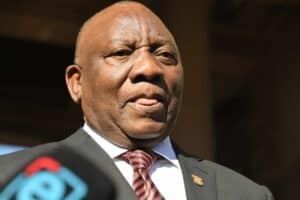It’s true that, as a nation, we have never much endeared ourselves to our fellow Africans.

Ahhh! There’s nothing quite like the occasional aromatic waft of sewage as one sips the day’s first coffee at a Mauritian street cafe.
That’s one of the disadvantages of soak pits, or French drains as I was taught to call them. On an island with a high water table, any crashing downpour and all is revealed.
When I challenged a Francophone acquaintance on the basic flaw to this Gallic innovation, he sniffed dismissively. “Primitive things. But in France we’ve always known them as English drains.”
Whatever the origin, successive periods of French and British colonisation of the island have failed to perfect their use here. When it rains, the scent is unmistakable.
Sometimes, though, it’s attitudes, not things, which stink.
This week, I was seated next to a bunch of rowdy, demanding, and obnoxious South African tourists. When they left, the waiters rolled their eyes and one mock-wiped his brow.
Of course, no nation en masse is a pleasant experience. But it’s true that, as a nation, we have never much endeared ourselves to our fellow Africans.
During the apartheid years, white South Africans largely made themselves known to their neighbours through expeditions of murder and pillage. At the same time, our black exiles, known for their indolence, didn’t exactly charm their reluctant cross-border hosts.
Nothing much has changed. Our mostly white corporates try to use their size to obliterate their competitors on the rest of the continent, albeit only commercially. And our mostly black governing class, with its ostentatiousness and condescension, continues to irk.
My suggestion last week that little Mauritius could give SA some lessons on how political pragmatism and modest ambitions can deliver astonishing economic results, elicited some interesting reactions. The tenor of the comments ranged from widespread bemusement, to occasional irritation at my stupidity in failing to comprehend that SA is innately different.
That’s a way of thinking not unlike many in the US, of their country being exceptional and superior. Ian Tyrrell, an Australian historian, notes that American exceptionalism is not about the unique aspects of the US. “Exceptionalism requires something more: a belief that the US follows a path of history different to the laws and norms that govern other countries.”
Substitute US with SA and that is a fair description of ourselves. The Afrikaners, who shaped the pre-1994 SA, had an unshakeable belief that they were God’s chosen people and that, by definition, anything and everything they did was preordained to be blessed and exceptional.
Now, post-1994, the ethos is imbued with magical thinking organised around our own deity, Madiba. It’s the mistaken feeling of invincibility for stepping away from the brink, and apparently reconciling the hitherto irreconcilable mix of races, ethnicities, religions and languages.
American exceptionalism is wearing thin, exposed to winds of global change that most of the US seems unable to conceive. SA exceptionalism is no different – the burnish is turning to tarnish.
Bemoaning the paucity of Mauritian birdlife, I remarked that this was probably not surprising, given that this is the island where the dodo was driven to extinction. The Mauritian putdown was caustic: “Our Dutch wiped out the dodo, a bird. Your Dutch almost wiped out the Bushmen, a people.”
William Saunderson-Meyer.
For more news your way, download The Citizen’s app for iOS and Android.






